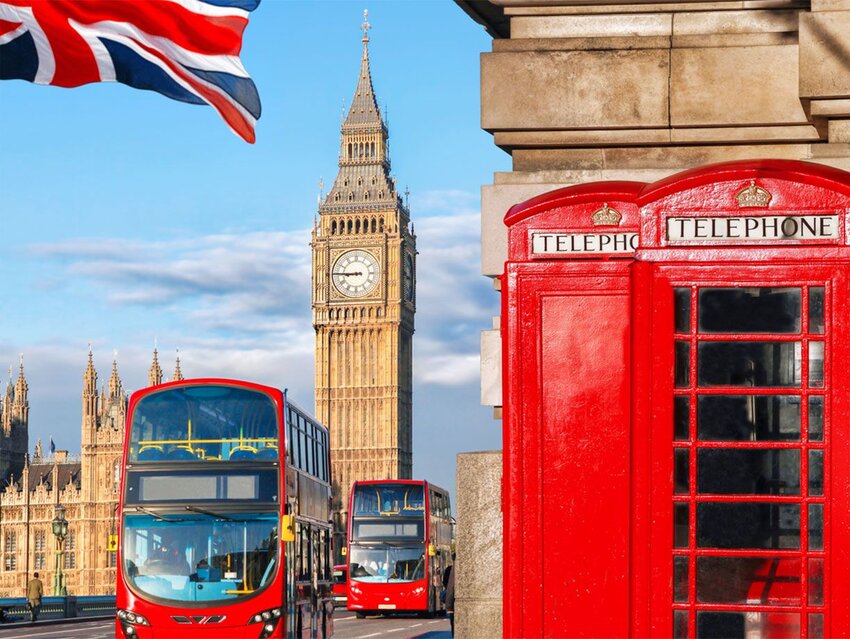While English is spoken on both sides of the pond, the accents and even grammar vary drastically. For some Americans, “British English” means the firm elocution and hard consonants of Downton Abbey. Others think of the strong, round vowels of Birmingham-set Peaky Blinders. Travel around Great Britain (or explore its TV programs) to encounter the variety of accents, dialects, and grammatical differences within British English, spoken in England, Scotland, and Wales. Read on for tips on how to identify which British accent you’re hearing.
Changing Grammatical Rules
Let’s start with the Received Pronunciation of British English, also known as Standard Southern British English. In the example below, the subject (“they”) is plural. The conjugation of the verb matches it. This is most likely the grammatical structure used in the halls of Parliament or when teaching primary school.
Example: They were going to the park.
Linguists consider this an example of standard grammar, with uniform rules and applications. However, outside of London, different regional dialects have their own grammatical rules. In Birmingham, speakers with a “Brummie” accent are more likely to use the third-person singular of a verb with the third-person subject.
Example: They was going to the park.
Linguists call this non-standard grammar, but importantly, it’s not incorrect — that would be prescriptive. Instead, linguists prefer using the descriptive term (and its counterpart, standard grammar) to highlight that this grammatical structure simply isn’t as prestigious as the first example. Someone who learns both standard and non-standard grammar may use the former to signal their education or social status.
Speaking in Code
The rhyming slang of the Cockney accent is commonly heard in the East End of London (try to imagine the accent of actor Michael Caine). While technically English, Cockney has its own vocabulary. Invite someone to stop by for a “Britney” (short for Britney Spears, which rhymes with beers) and share a pint. If that same friend owes you money, ask them for “bees and honey.” Sometimes the rhyming words get dropped off, as in “Call me on the dog” instead of “call me on the dog and bone,” which rhymes with “phone.” Why the confusing word swaps? In the 1800s, it may have developed as a way to talk in code in front of the coppers.
Contractions
Scottish dialects have strong variations when it comes to incorporating auxiliary verbs with negatives. A standard form may look like this:
Example: I haven’t got any eggs. I didn’t buy any.
In this example, “have” and “not” combine to become a negative contraction. When speaking, a speaker would also likely enunciate the “t” sound in haven’t and didn’t.
With a Scottish dialect — of which there are many! — that’s not the case. Instead, the “t” sound often gets dropped and the auxiliary verb combines with the subject of the sentence.
Example: I’ve not got eggs. I didnae buy them.
For those used to hearing RP, a Scottish dialect may take some getting used to. Importantly, speakers in the U.K. find non-standard grammatical forms perfectly acceptable, especially in the North.
Featured image credit: MISA NISHIMURA/ iStock

